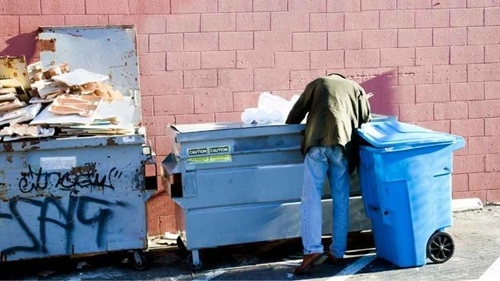Yes, it is illegal to egg a house in the United States. Egging a house is generally considered an act of vandalism or criminal mischief under the law, as it involves damaging someone else’s property. Depending on the extent of the damage and local laws, offenders can face fines, criminal charges, and civil lawsuits.
Legal Implications of Egging a House
1. Vandalism and Criminal Mischief
- Egging a house is classified as vandalism or criminal mischief because it causes property damage. The sticky egg residue can stain paint, damage wood, and corrode surfaces, leading to expensive repairs.
- State laws define vandalism as intentionally defacing, damaging, or destroying another person’s property without permission.
2. Degrees of Offense
- The severity of the charge depends on the monetary value of the damage caused:
- Misdemeanor: If the damage is minimal, typically under $500, the offender may face a misdemeanor charge.
- Felony: If the damage exceeds a certain amount (varies by state, often $1,000 or more), it may result in felony charges.
3. Additional Charges
- Depending on the circumstances, egging a house may lead to additional charges, such as trespassing, harassment, or disorderly conduct.
- If the act targets specific individuals or groups based on race, religion, or other protected characteristics, it could be classified as a hate crime, which carries enhanced penalties.
Penalties for Egging a House
1. Criminal Penalties
- Offenders may face:
- Fines: Typically ranging from $100 to $1,000 for misdemeanors, or higher for felonies.
- Jail Time: Misdemeanors may result in a few days to months in jail, while felonies can lead to several years in prison.
- Community Service: Courts often impose community service as part of the penalty, especially for juvenile offenders.
2. Restitution
- Courts may order offenders to pay restitution to the property owner for the cost of cleaning or repairing the damage.
3. Civil Lawsuits
- Property owners can sue offenders in civil court to recover additional damages, including costs not covered by restitution, as well as compensation for emotional distress or inconvenience.
Legal Consequences for Minors
1. Juvenile Justice System
- If a minor is caught egging a house, they may be tried in juvenile court. Penalties often include community service, counseling, or probation.
- Parents or guardians may be held financially responsible for damages caused by their child.
2. Parental Liability
- Many states have parental responsibility laws that make parents liable for property damage caused by their minor children, up to a certain monetary limit.
Prevention and Reporting
- Homeowner Protection
- Install security cameras or motion-sensor lights to deter vandalism.
- Promptly clean egg residue to prevent permanent damage.
- How to Report Egging
- Report the incident to local law enforcement, providing evidence such as security camera footage, photos, or eyewitness accounts.
- File an insurance claim if the damage exceeds the deductible.
Related FAQs
Q1. Can egging a house lead to a criminal record?
Ans: Yes, if convicted, egging a house can result in a criminal record, which may affect future employment or housing opportunities.
Q2. Can I sue someone for egging my house?
Ans: Yes, property owners can file a civil lawsuit to recover damages not covered by criminal restitution.
Q3. Are there enhanced penalties for egging during holidays like Halloween?
Ans: Some states or municipalities impose stricter penalties during holidays to deter acts of vandalism.
Q4. What should I do if my house is egged?
Ans: Report the incident to law enforcement, document the damage with photos, and clean the egg residue promptly to prevent further harm.
Q5. Can a minor face jail time for egging a house?
Ans: Minors are typically handled in juvenile court, where penalties may include community service, probation, or restitution rather than jail time.
Conclusion
Egging a house is illegal and can lead to criminal charges, civil liability, and financial consequences. Whether committed as a prank or with malicious intent, egging is considered vandalism, and offenders may face penalties ranging from fines to imprisonment. Property owners can protect themselves by taking preventative measures and promptly reporting incidents to authorities.

